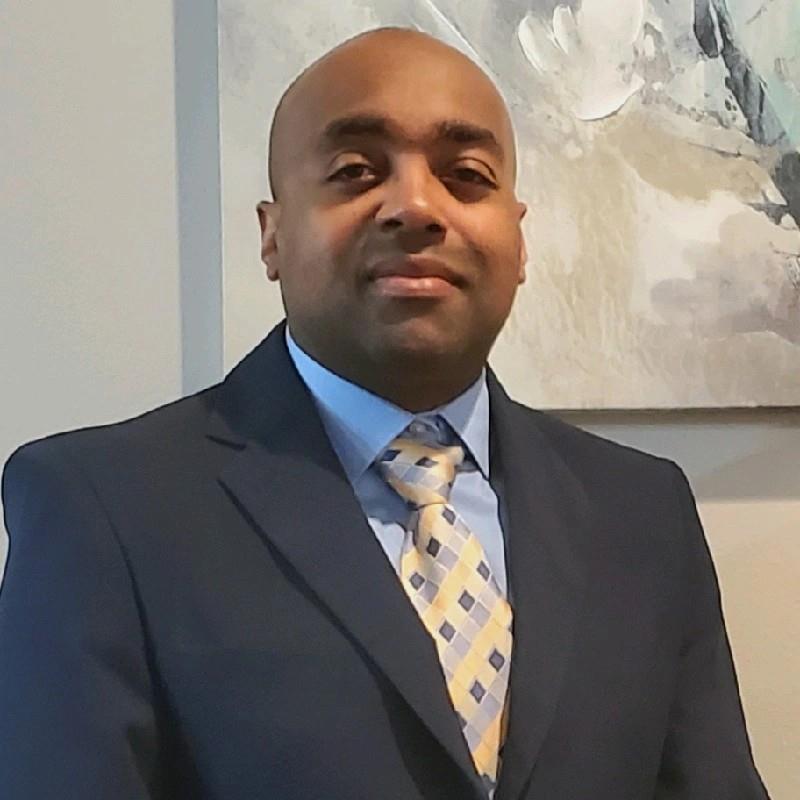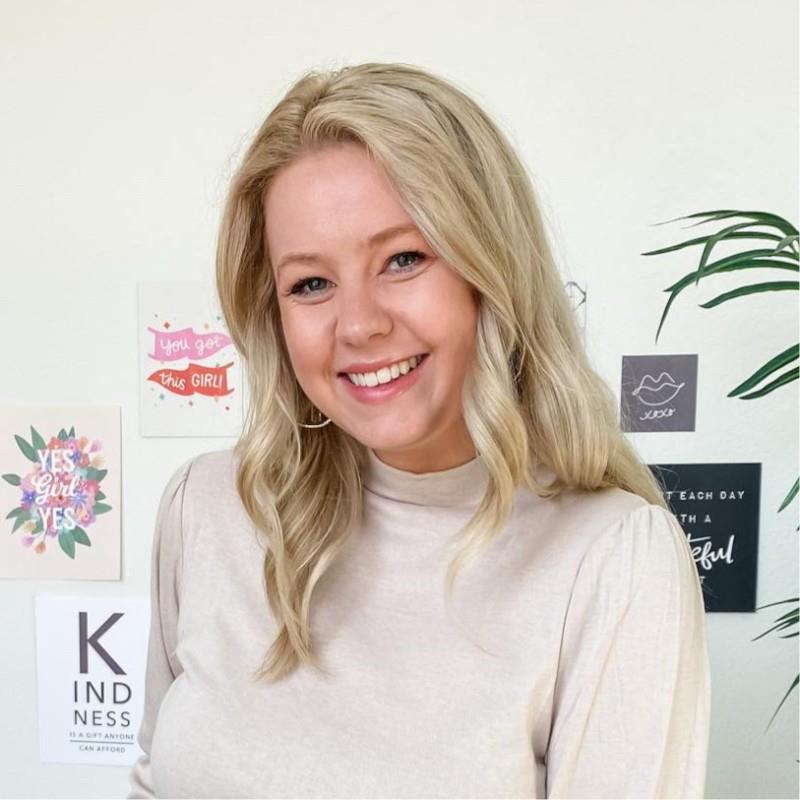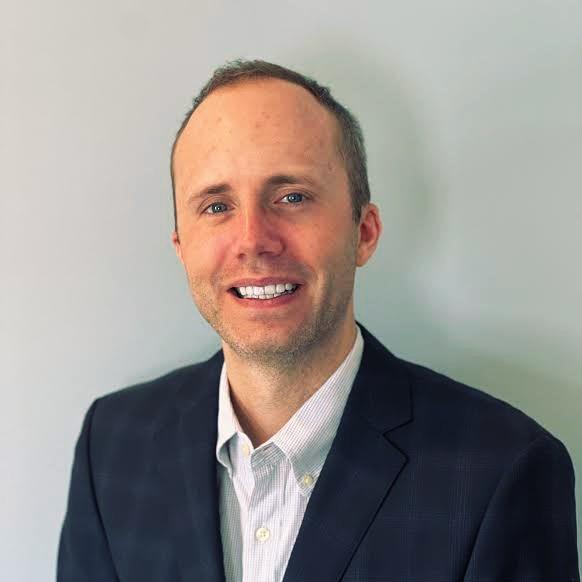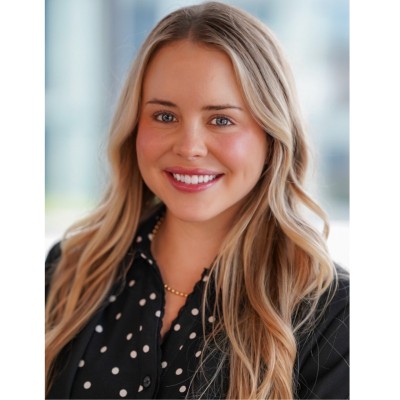
There are few restrictions as to who could start a job in pharmaceutical sales, but companies are definitely looking for certain qualities that give prospective applicants an edge. What are these qualities? Samuel Gbadebo asks this question to Dino Lourenco, a District Sales Manager at the Neuroscience Division of Janssen Inc. Starting out in sales in Xerox, Dino found his first opportunity in pharmaceutical when he joined Johnson & Johnson in 2007. His passion for helping the people who need the products he is selling has kept him going for the past 13 years and he sees a future of further growth within the industry in the years to come. If you’re new to pharma or someone looking to shift into this space, this episode gives you the most fundamental things you need to learn beforehand.
—
Watch the episode here
Listen to the podcast here
What Companies Look For In Pharmaceutical Sales Representatives with Dino Lourenco
We have another interesting guest. This is Dino Lourenco. He is a District Sales Manager with a well-known technology company in the medical devices and pharmaceutical space. Dino is going to be talking to us from the pharmaceutical space as he’s a District Sales Manager there in the neuroscience division. We’re going to get into what candidates need to pay attention to when they’re trying to get a pharmaceutical sales position, what he looks for when he wants to bring someone on to his team. We talk about his career and we also talk about transitioning from sales rep to sales manager and what you need to consider, what you should do to prepare and the different perspectives on both sides. It’s a great episode.
—
Dino, how are we doing?
I’m doing well, Sam. How are you doing?
I’m fantastic. No complaints. First, I want to say thank you for being on the show. We have with us Dino Lourenco. He works with Janssen and he is a District Sales Manager there in the neuroscience division. Dino, why don’t you go ahead and tell us a bit more about who you are and what you do.
I’m a District Manager with Janssen and I do have to say up front that what we’re going to discuss in my part of my discussion here is my sole opinion, not the opinion of Janssen or Johnson & Johnson as a whole. Get that policy compliance reminder out of the way. I’m a District Sales Manager with J&J and Janssen. I’ve been here for several years and in the neuroscience division for about 1.5 years.
You’ve been in the industry, you understand it. How does neuroscience differ from primary care pharmaceutical sales?
There are some products that are sold into primary care, but neuroscience products are generally sold into psychiatrists or institutions that psychiatrists work in like community mental health facilities or psychiatric hospitals, inpatient or outpatient. Generally, neuroscience products are generally sold into psychiatrists.
With everything going on in the economy and with the pandemic we’re all working through, what is a day in the life of a pharmaceutical sales rep now? Speak from a pharmaceutical sales rep perspective then from a management perspective.
We do our best to make it as normal, much like our old life as possible. Nowadays, representatives are making their sales calls via Zoom and via the phone and reaching out via email or text. Everything has gone virtual. Nowadays, my reps are making the same amount of sales calls they were before, anywhere from 7 to 9. Doing that from home and with the goal of reaching out virtually and getting as many virtual Zoom appointments as possible with the folks in presenting via their sales presentations via Zoom through their iPad assets that we call them and reaching out that way now.
What would you say is the biggest, if there is one and be as honest as you can, advantage is to the environment we’re working in now having to do everything through Zoom?
[bctt tweet=”The most important thing for anyone in sales is not to be a slick talker, but to be a good listener. ” via=”no”]
The biggest advantage is getting in front of healthcare professionals that we weren’t able to before. Psychiatry has been on this telemedicine track for a while. They were ahead of the curve in that sense because the nature of that specialty, you don’t necessarily always need to be doing vitals on a patient or seeing them in person. They had flexibility to be able to do telemedicine in the past and honestly because of budget as well. A lot of community, county or state type of clinics were already bringing in psychiatrists on a screen versus in person so that they could be anywhere and hire them in at a lower rate. They’ve been there.
That presents a challenge for us to get in front of those folks. If you’ve already been on telemedicine and you’re not physically sitting in an office, we can’t reach you easily. With the pandemic, we’ve been able to get in front of more of these telemedicine doctors. We’ve changed in the way we approached physicians, but also these healthcare professionals have changed their acceptance to do Zoom or to meet folks virtually has changed as well. We’ve been able to get in front of a lot more folks that in the past who had been more challenging.
Do you feel that it’s going to go back to the way it was as we get under control? Do you think this is going to create some more permanent ways of doing business?
I think both, it will probably go back to the in-person being primarily the way we see folks, but I do think that this virtual environment that we’re in will stick around for a long time. It’s still convenient. There was a learning curve that had to happen. We spent that first month, us learning ways to be, have impact virtually, but also our physicians getting and our healthcare professionals, whoever their physicians or staff or anyone getting accustomed to the virtual environment. Imagine a community mental health clinic. They’re not exactly running on the latest computer system or have one at all. We had to find ways to get that going and or they had to find those ways so they’re accepting of it. The immediate future is probably a hybrid of both. Everyone would go back to some in-person and virtual and long-term, this virtual environment will stick around for a long time. It’s something that in pharma we’ve been talking about doing for a long time, but it’s not that now that it’s here, it will stick around.
Take us back to why you got into pharmaceutical sales. When you were little, what was the dream?
When I was little, I wanted to be an astronaut. A bit later on I wanted to get into law. I went to college with the idea of going to law school and I interned for a lot of lawyers and found out quickly that I didn’t want to be a lawyer. That helped focus me, but also, I was a bit lost. I decided to try to go into a career in sales. I had a lot of friends that had gone into sales, working for enterprise, rent a car and other sales jobs, somewhat financial companies. I had a friend that worked for Xerox. I ended up taking a job with Xerox, which is a highly competitive outside sales environment, to see if I liked it.
That was the purpose. If I can hack it at a Xerox then I’ll make some money. I can learn about sales, a great training program. If it doesn’t work out, it doesn’t work out. It turns out I loved it. I did well at Xerox and loved the environment there. I had a great mentor there that had worked in a variety of sales jobs for many years. He took me under his wing and taught me the ropes. While I was there, as much as I loved the thrill of a copier sale, it wasn’t exactly what I imagined the rest of my life being. I need bit more purpose, but I did love sales. I started to look into several friends, pharmaceutical companies and medical device companies frequently recruited from Xerox. I had a number of friends who had moved on into that industry and got to know what they were doing a bit. Went on a couple of ride days, which I suggest if you’re ever able to make that happen to do, to see the day in the life of someone in pharma.
I loved it. My father at the time had Type 2 diabetes. There were two diabetes companies that had posted so I applied for them and ended up getting one of those jobs within Johnson & Johnson at the time and went in. For me it was about matching what I thought was good at the time, which was sales. I loved it, the thrill of getting in front of people and persuading them, if you will. I guess it’s related to the passion I had going into law at the time, but also putting purpose behind it and working for a company that I felt had the same passion for patients and for making a difference in the work.
You also had this personal reason, it was connection because of diabetes in the family. I’m sure that came up in an interview or it came up when you talked about why you wanted to get into the industry.
It did. You don’t even have to have a necessarily personal connection, but I did, definitely. For me, diabetes was something I was interested in learning more about. For my family and also making a difference in because I saw the effect that it had on my father and others in my family. For me, it was an easy conversation on my purpose going into diabetes, but also going into specifically the company I chose to go into, which I felt innovated in that space and had a clear purpose in everything it did and specifically in diabetes.

You were in the diabetes area for a while. You had good experience as a representative. When did you make that transition into leadership?
Like most pharmaceutical reps that have a desire to go into leadership. I was in a management development program for quite a while. I was a field sales trainer for a long time. I went through a couple of different operating companies within a migrator, a larger operating company. I got to work for a couple of different divisions and got involved with training. I went back in-house and worked in our sales learning development department, the training department training new hires, developing content for product launches and all the different things that we did. I went back in-house to do that for a couple of years with the intention of developing myself to come out as a district sales manager, that I could be a more well-rounded leader.
You’ve seen it all as far as what it means to be a sales rep and what it means to be a leader. When you think about being the ultimate sales rep, what are three qualities you say have to be there from what you’ve seen that make an excellent pharmaceutical sales representative?
I’ll see if I can come up with three, but the one that I interview for a lot these days is someone that’s collaborative, I’ll start with that and maybe it’s not the most important. These days you have to be someone that collaborates easily and seamlessly. The environment we work in now, there are lots of different layers within a pharmaceutical sales territory. You’re usually not alone either. The days of that lone wolf pharma or medical device sales position has gone. Folks have to be able to collaborate well together. Honestly, you get more out of your territory or whatever you’re trying to sell if you’re able to work with someone else that understands your different strengths and utilize those to get in front of the customers and get things done.
Collaborating seamlessly, we frequently think about someone that’s a salesperson as someone that is good at talking, to make it simple. Someone that’s a slick talker. The reality is one of the most important things is being a good listener. Someone that’s able to listen and it comes down to customer needs, the basics in sales. How you’re able to understand your customer needs in order to present your product solutions in a better manner. People that are good listeners. Samuel, if you’ve sat in a sales call before as an observer, you see it all the time.
There are many things that are missed. We’ve had the tendency to want to present and not listen. Those that are the best listeners, that are more connected to their customers. That translates even further outside of a sales call. Those people are naturally someone who’s going to look into what’s important to a customer, what’s important to their organization. What are the goals of this organization? What are the goals of the organization, even the payers that they work with? That you’re able to put all those things together to when you have the opportunity to get in front of someone bring value. Those are the top two things.
The last one is being resilient. These days you have to have always a job that you have to have thick skin. You’re going to hear no, people are not going to want to see you. If that’s something that deters you, then it’s not the industry for you. That’s important. You have to have that self-motivation to wake up every single day optimistic and looking to achieve your goals for that specific day and not be deterred by the noes or the access issues that you’re going to have. It’s a fact of life now that access is tough for the way health systems are being consolidated and IDNs are now organized. There are these elements of the anti-fraud medical device. You get a bit of restricted access. You’ve got to be resilient, got to be able to bring value. You’ve got to work well with others.
That makes me think when it comes to getting into a pharmaceutical sales position, some of those things you can bring into it. Resiliency, for example, if you want to get into the industry, you’ve got to be resilient and go through the interviews and experience some noes and figure out ways to get in. What else would you say is important to consider if you’re someone that wants to get into the industry? What is it about people that you interview that you believe? What do they need to have so that you believe they’re ready to get a pharmaceutical sales position or ready to work with your team?
I’m thinking demonstrate those three things we talked about. Those three things are important and it’s easier if someone’s been in the industry or some sales job to be able to demonstrate those three things. Those are the big ones. The benefit to me, what makes my job easy as district sales manager interviewing people is that the interview like a similar situation that they’d be in front of a customer. With the product being them and I’m the customer, I’m the healthcare professional. Even though it’s extremely important they demonstrate the basics of the job, but how their skills and experiences match the job description. That’s simply that. It’s also how they ask me questions and how they interact and present themselves as a product.
That to me, I’m looking for as an example of how they’re going to show up in front of the customer. It makes it easy. I’m not interviewing engineers. I don’t have to see their cab designs or whatever else they do in an engineering firm. I get to listen to how they present it. That’s how they’re going to show up in front of the customers most likely. There are a few things in that. You don’t have to have pharmaceutical sales experience, but what you do have to have are examples of how you do fit what the job is going to require and be successful in a short-term. There’s a risk if you will in hiring someone especially if they don’t have direct pharmaceutical sales experience. It’s like someone took a “risk” on me, but I had demonstrated success in something else that I was able to give examples of to show how I was going to translate that into a successful career in pharmaceuticals and medical devices. You’ve got to minimize that risk with those great examples.
[bctt tweet=” If you’re constantly studying but not applying, you’re not really learning.” via=”no”]
When it comes to mitigating that risk and seeing something that person is bringing to the table that makes you feel confident they can do the job, are there specific careers that typically stand out to you? Does it not matter as long as they performed in whatever that career was?
More so on that second point, it’s less what the career is more about, their skills and experiences in that. Now they’re able to communicate that to me. It’s a lot easier, it’s rarer to hear someone that wasn’t something that’s not a sales position to be able to communicate that, but that’s not the case. I work with people now that didn’t come from a traditional sales job, that came into pharmaceuticals and are successful at it. More so, it depends on how you’re able to take those experiences that you’ve learned and put them into practice here. The thing about a pharmaceutical sales job, it is independent as well.
You do want to cut your teeth. Is this what you want to do? I’m not with you five days a week primarily sitting next to you in a cubicle doing sales calls with you. You’re on your own and you’re out there doing it. You have to be self-motivated, someone that’s resilient that has that drive to be able to want to go out there, do it and also to continuously improve too because there’s a lot that changes consistently in our industry. You’ve got to be focused, resilient and willing to learn. Those things are more important, that someone that’s a self-starter. You don’t have to have the traditional sales experience, but it certainly does help you weed yourself out to say like, “Do I want to be a salesperson?”
When you think about the transition you made from sales rep to manager, what were the biggest differences that you saw? I’m sure even before you became a field trainer, you had some idea of what you thought management was going to look like. Now that you’re in management, it’s like, “Wait a minute.” What were some of those things that surprised you?
We have a good program here. Whenever you’re someone that’s learning to be a manager, there are certain scenarios they give you that you think there’s no way that that’s the reality of the type of situations you’re going to get in, but they are. What still surprises me is how accurate training was. Overall, being on the management side, I’m glad I went through that in-house side to give me a greater 30,000-foot view perspective.
Any manager is the buffer between upper management. Any direct first-line leader like myself is that buffer between upper leadership and those decisions that are made in the actual field on the street. You have to translate that. You are upper management. Understanding the decision-making at a higher level before coming into this level helped prepare me because without that, it would be a more adversarial take on it. Being able to take all the upper-level strategy decision-making and translate them out specifically to my team, it’s better.
There wasn’t a lot that was surprising, but overall if you are someone that’s looking to be a first-line leader, you can’t simulate having a real team. It’s difficult. Even when I was a sales trainer, I was working with new people primarily or people that were receptive to training. That’s different than being a coach of people that have been in this industry for many years, longer than I have. You still have to coach and develop people, but you also have to motivate and inspire people regardless of how long they’ve been with the company. It’s hard to simulate that one. I’m a field trainer. When they come to me, they’re either new or there’s something specific that we’re working on that I’ve been assigned to. Increasing that knowledge base as much as possible. I’m still learning a lot. Everyone always does but on what it takes to do that.
What would you say are one of the biggest challenges of being a manager?
It’s your bandwidth, so being strategic with your time. That’s it. Like every job to some degree. For everything that I said, where am I going to choose to utilize my limited time with what I’m going to do. Is it to work with someone that’s newer? Is it to spend more time with some of my tenured reps to understand their needs? Is it sitting down and blocking out my calendar to do business planning? Is it connecting with different partners and how often should I do that? It’s that allocation of time and my own personal resources, which is one of the biggest challenges that everyone runs into.
The bigger decision-making on strategy, that’s where I need to spend my time. To motivate and inspire people. Making sure we’re on the right track. Check-in is when do we abandon certain strategies or tactics that we’re on? That’s something that every district manager thinks about as what are our check-ins? What are our leading indicators of our success? When do we cut bait and go after a new strategy or stick with things that it’s easy to in pharma where your numbers are running quite a bit behind, it’s easy to look at short-term results and decide to make a different decision? Those are the decisions you’re weighing.

I know that some managers, they’ve been trained well by the company, they haven’t sought out or felt they needed any additional training. I know some managers they spend a lot of time looking for different resources to help develop their skillsets. Where do you fall?
You have to constantly be learning. I work with both. I work with some folks that have been managers for many years that are constantly learning. People that are many years they’re still talking about the philosophy that they learned 25, 30 years ago and it works for them. It depends on what you like. I’m a learner. I like to learn from other leaders and understand what their philosophies are, what books they’re reading, what inspired them and led them to be great leaders as well and learn from them. I definitely am on the constant learner, with that, it’s what you can apply. You only have so much bandwidth. If you’re constantly learning and you’re not applying, you’re not learning. There’s a balance to it, but I like to know what’s made other people successful.
You talked about how you’ve got to get up and want to do it. You’re driven, you have to have your purpose behind you. You and your career, you’ve been after it. You put yourself into a company. Right from Xerox, you performed well. You went to field training, you performed well, you make it into management, continue that. What is it that’s consistently driving you now? Why do you even push to get these things done and be successful in your career?
What started me out in my career, I see pharmaceuticals and what I do now and I’m in neuroscience. My father was bipolar as well, committed suicide. That’s the reason I wanted to get into the neuroscience side of the company that I work for now. I see us in the commercial side, sales, marketing as the advocates for the researchers. Those that came up with these products to help people. Who were the voices of them? We pick that mission, that purpose up. Once it gets approved by the FDA and take that out into the streets and get it to the hands of the doctors to use for the right patients.
That’s what drives me every single day that I wake up, I’m out there for ultimately the patients that use the product. It’s easy for me to do that. Why I wanted to get into management is because I do deeply care about the success of everyone that is under my supervision. I’m lucky enough to work with a dedicated group of individuals like that. I’m dedicated to their development, to their motivation and inspiration in doing what we do every single day for them to get the most out of themselves and their careers. That’s what I’m here for too. That’s what I spend a lot of time on, those two things.
It’s wonderful to hear that you have such an important passion behind why you do this. Talk to me a bit about the med device part of your career. When was that? What were you doing?
That’s at the beginning of my career. I sold a medical device that was a blood glucose meter. The medical device that was sold by the pharmaceutical. Even though sale itself, it was selling of a medical device. Not as clinical trial-driven, more products feature-driven. It was prescribed as a pharmaceutical, but then after that, I moved over and sold insulin pumps, which was more of a traditional medical device side. That was a rewarding, different type of sale. If you’re selling insulin pumps, you go and meet with patients. The laws have changed a bit, but we would go and meet with actual patients that were HIPAA-cleared that were interested in getting an insulin pump. You’d work with the healthcare professional, usually an endocrinologist that would narrow it down to 1 or 2 insulin pumps. If it was yours, they arrange a time for you to meet with the patients, to go over the insulin pump and sell the patient themselves on why they should choose your insulin pump over your competitors.
What was that style of sell compared to what you normally do?
Now it’s vastly different. Pharmaceutical sale is indirect and to some degree you’re almost like a tool salesman. You’re selling a tool for a physician to use. You’re talking about the appropriate patients for them to choose who they choose now, their own treatment algorithm, why they choose your product or products that are in your category and how you can expand that utilization. You use a lot of clinical data to do that and some patient stories, but ultimately then they leave you and they go into that patient room and make their own decision from there and you’re not sitting next to them.
That sales is directly with the patient. It’s a sale, but it’s much even more consultative. It is a consultative sale in pharma, but these people are choosing an insulin pump for themselves or for their child. You have to take a step back and understand what they’re looking for. What they’re looking for, what their budget is, there are costs involved. What are their goals for this? For example, that product was waterproof and some of our competitors weren’t around what their lifestyle is. It all ends up being the same. What are the features of your product or the benefits that’s going to provide for this patient specifically? Definitely, a lot more direct. It’s a whole different game.
[bctt tweet=” Don’t become stagnant. Focus on yourself and focus on personal development. ” via=”no”]
What’s on the horizon for you? I know you can’t lay out your entire plan right here right now. You looked towards leadership when you were a sales rep. What do you look towards doing now?
Being successful in this role, there’s a lot that I’d like for my team to achieve here in this geography that I’m in charge of now for all those personal reasons that I talked about before. There’s a tremendous amount of opportunity. We still have to help patients. I’m extremely dedicated to that in the short-term. Ultimately, I would like to be involved in other parts of our organization and the marketing department. There are many different firms there, but I’d love to get into marketing and be part of the decision-making on the messaging and some of the resources that we bring to the field in order to be more effective. Ultimately, I’d take other leadership positions within our organization as well. Regional director and those types of positions. I got laser-focused on this specific geography and the launches that we’re going through.
I’m going to ask you an all-encompassing question considering where you are in your career and going back to right after you worked for Xerox. What would you have told yourself to do? What advice would you have given yourself that you didn’t know then that you now know?
Looking back, I would have made my career decisions based more on building skills and experiences than I did. Meaning, moving from some of those career moves I made were more about the products I was selling or what I thought was going to be interesting at the time, which was fine. I could look at myself now and I look at some of those gaps in my experiences that I’m still filling in. Maybe different types of institutional selling, as an example, different therapeutic areas. I stayed in diabetes for a long time, which I love, got a passion for. There are different elements of this industry that I could’ve learned better to be more effective now.
I would have gone after different types of experiences and skills in the roles that I was going after versus going after role to role based on what I thought was interesting or what opportunities presented right in front of me at the time. I would have taken a step back, see the bigger picture a bit more, and made those decisions based on how I am going to build my overall skillset and my overall knowledge of this industry knowing now that I’ve been in it for this long. I’m probably going to stay in it for the rest of my career as well.
What would you share for those that are wanting to get into pharmaceutical sales? Also, for those that are already in pharmaceutical sales, what would you share?
For those wanting to get in. It’s a bit of what we talked about before. You are selling yourself. Why do you want to get into pharmaceutical sales? Probably I could Google what questions you’re going to get asked in a pharmaceutical sales interview. I bet that’s the first one. I’d be surprised how many times I don’t get a great answer to that. That’s okay. It doesn’t have to be a sterling perfect answer in my book, for some maybe. Know why you want to get in and ultimately when you get to that interview, you’re selling yourself. If you don’t have those skills and experiences as you read the job description and think to yourself, “How can I get those?” Maybe, “How can I work with someone, some consultant or someone who knows this industry to coach me up to build some of those competencies that are going to be required in that role?” Ultimately, if you don’t have that traditional sales experience or pharm experience, you’re going to have some way that you’re able to communicate how to have the competencies to do the role and help speed the impact, because that’s ultimately what it is.
That’s number one for those that haven’t been in it. Read some great books, work with a consultant, work with someone like yourself to learn about what the pharmaceutical sales interview is. The interview is like the job. You are the product. You can coach up and learn how to sell the product also. Maybe improve the product as well and make sure the product itself is ready for the job. Work with someone like yourself. Read up on it, some books about selling some sales philosophy, maybe you believe in and have used or one that you plan on using that you’ve heard from others is successful. Integrity Selling is a great book. That has applied for a long time, but also applies to pharmaceutical sales specifically. That’s number one. People in the industry, it’s easy to become stagnant and stop developing yourself.

That’s number one. That’s what I challenge my team to do all the time is being focused. You have to be a constant learner, but you also have to be a constantly applier. That’s what I always focus on with my team. We can learn a ton of things, but what we’re going to learn, what can we focus on with our learning that we can apply? Let’s pick up a few things and try to do them versus trying to learn everything, but you have to be a constant learner. Think about yourself either if you don’t want to move on in management, sales training, marketing or anything, that’s fine. How can you refine your skills as a salesperson to become more effective in front of your customers? Also, even to take those skills and experiences and translate them and help your colleagues.
That’s the other way you can keep fresh. You’re going to always have new teammates. You’re going to have new requirements for your job. Anyone that’s been in pharma know that there’s always a realignment around the corner. There’s a reorganization, a new product that you’re going to sell. You’re going to have to learn that anyway, but you also have to always focus on yourself in your personal development alongside of all the product stuff that you’ve got to learn and all that as well. Don’t become stagnant.
Thank you for that, Dino. It was wonderful having you and you gave us a lot of insight, some understanding from how to get in, to being in, to even how to lead. We sincerely appreciate it. I thank you for being with us, Dino.
Thank you, Samuel. I appreciate it.
I’ll talk to you soon.
Take care.
—
That was Dino Lourenco. What I like about Dino is he has a lot of experience. He’s fully experienced the sales rep life. He knows how to see it through a sales rep’s eyes. He’s immersed himself in training so he knows how to train what a sales rep should know and demonstrate and execute. Now he’s a leader that understands how to lead. He has that 360 view on being successful whether you’re getting into the industry, you’ve been in the industry or you’re trying to transition into leadership. It’s great to get perspective and insight from someone like that. Some things went over in this interview were the importance of listening skills and I love how he tied it to the actual interview for someone that wants to get a position and how important it is they need to demonstrate that they’re a great listener. That they understand how to address a customer’s need.
In an interview, you are the product, you are the service that’s going to address your hiring manager’s need for their team. To understand how to sell that, how to show that is critical because if you can do that in your interview, then you’re giving the benefit of the doubt of being able to do that in front of a customer when you’re on that team. Resilience, bringing value and working well with others. These are all critical things to being an effective pharmaceutical sales rep. Another thing that I liked is if you’re trying to figure it out and you want to get a position, then look into getting coached. It’s invaluable. It’s part of the game.
It’s part of understanding how to make the best steps to get the result you want to get the fastest. If you’re someone that wants to get into the medical sales space whether it’s medical device sales, pharmaceutical sales, genetic testing sales, dental sales, you name it. If it’s connected to medicine, then you need to make sure you visit EvolveYourSuccess.com, select Attain A Medical Sales Role, and look into the Medical Sales Career Builder Program designed to help professionals get the positions they want in the medical sales space. If you’re someone that’s looking to improve their performance, maybe you’ve had a year where it hasn’t gone quite the way you wanted it to or you’ve been a decent performer and you’re saying, “I know there are things I can learn that will take my performance to the next level,” make sure you visit the website and select Improve Sales Performance and let’s have a conversation and see how we can get you to where you want to go. As always, I do my best to bring you guests that you can learn from, get understanding from, an insight not only into the fields that they work in, but into how to operate within those fields. Thank you.
Important Links:
Love the show? Subscribe, rate, review, and share!
Join the Medical Sales Podcast Community today:



























































































